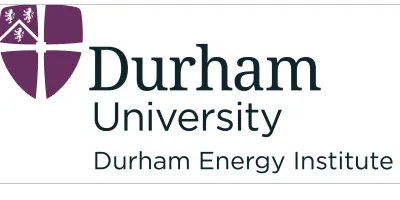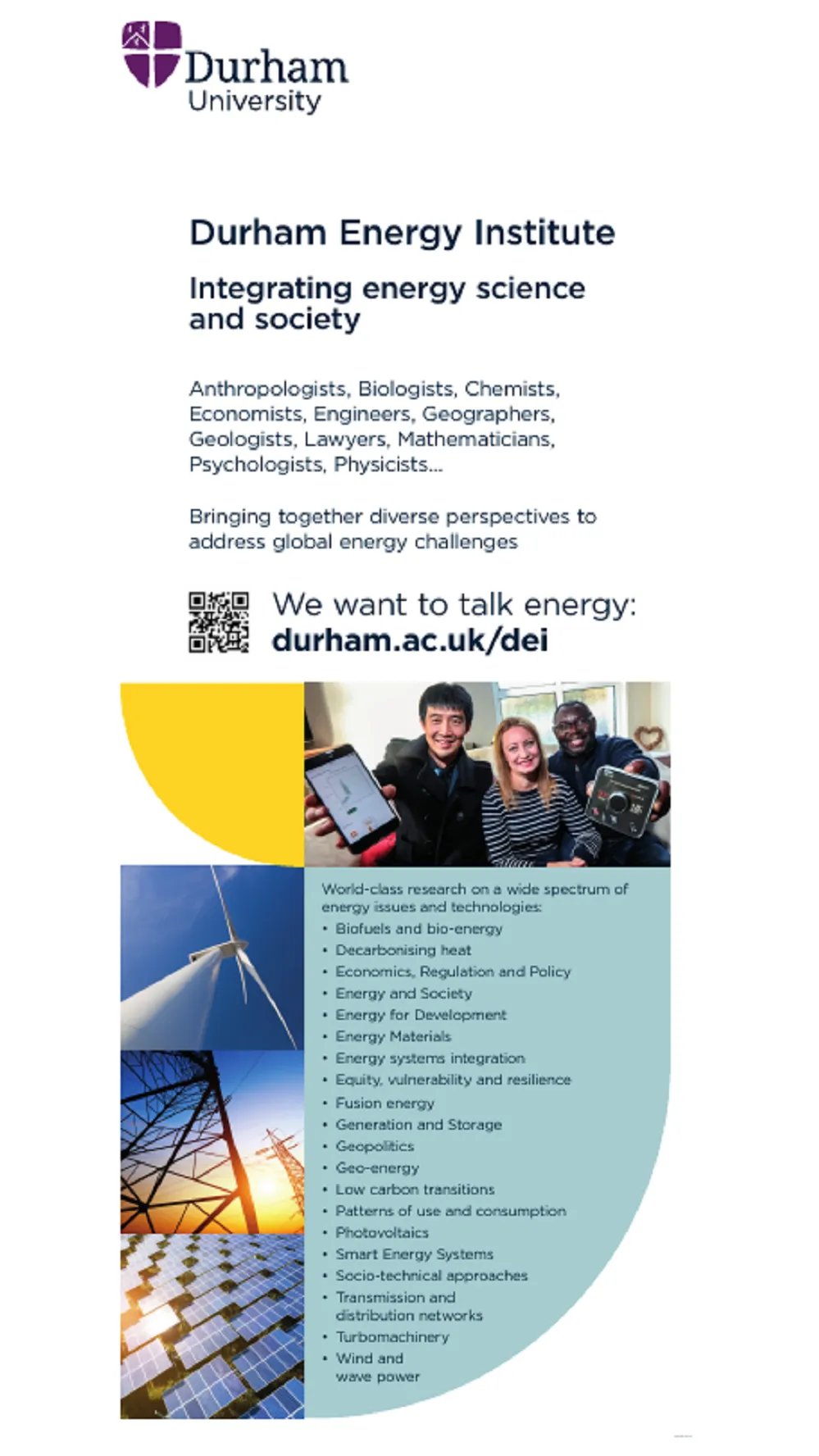

Durham Energy Institute, Durham University
Exhibitor
Information
Durham Energy Institute (DEI) is the hub of energy research at Durham University.
It unlocks research synergies between different disciplines and sectors to tackle the energy demands of the future. Producing world class research for understanding energy decarbonisation issues across science and society and delivering integrated solutions for the climate emergency.
Our Wind energy research is focusing on reducing the costs and increasing the efficiency and reliability of wind energy systems, particularly offshore wind. We are recognised as a leading academic wind energy research group in UK and globally, and is ranked third in the UK for publications in Offshore Wind.
We have a long-standing strategic partnership with Ørsted, the leading Offshore Wind Developer in the world.
Durham University is a member of Aura, the Humber Offshore Wind Cluster, with
Ørsted, Siemens Gamesa, the Offshore Renewable Energy Catapult and Sheffield
and Hull Universities, and we lead on the Innovation Group for Energi Coast, the North East Offshore Wind Cluster.
Our research spans all aspects of wind energy from the design of turbine blades
and foundations, cable installation, power electronics, the reliability and
condition monitoring of wind turbines, how turbines interact within wind fields
and with the environment, as well as the wider supply chain and regulatory
contexts of wind farms.
Our research into reliability has resulted in the development of new measurement systems and data analysis techniques for health monitoring of electrical and mechanical drive train components to improve the speed of detection of emerging faults and the monitoring of their development.
Our subsea cabling research has resulted in the development of new numerical analysis tools that provide greater confidence in subsea ploughing for cable installation, the development and analysis of turbine foundations, anchoring systems and modelling of seabed soils.
Our aerodynamic expertise and facilities are being used to conduct research into wind resource modelling, investigating the aerodynamic interaction between turbines in large arrays to ensure turbine positioning maximises outputs and studying the impact of leading-edge erosion on turbine performance.
Our state of the art facilities include Energy Conversion and Drivetrain, Wind Tunnel Array, Thermochemical Systems, Zero-Carbon Energy Systems, Hydrogen and Smart Grids laboratories which provide researchers and industry partners’ access to the latest research and analysis facilities to develop efficiency and smarter energy systems.
The research group stretches beyond just Engineering, linking with energy
researchers from the Business School, Law School, Computer Science and Social
Sciences. They are investigating supply chain dynamics and risks, international
legal and regulatory structures, opportunities for AI and smart energy systems
to increase the value of wind energy and low-carbon transitions globally.
Find out more at www.durham.ac.uk/dei/research/wind/
